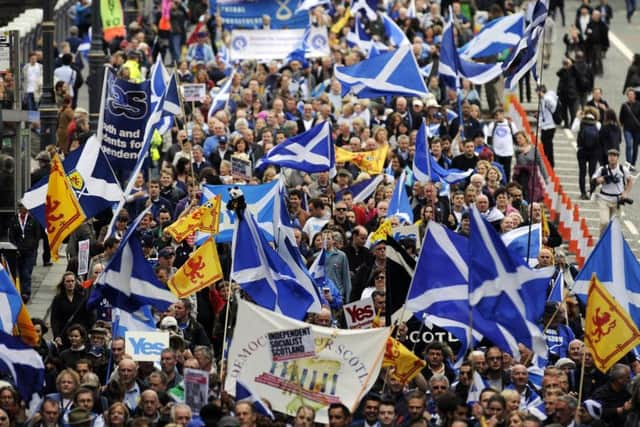General Election 2019: How likely is indyref2 after the election? Will Boris Johnson allow a second vote?
Senior Nationalists are already insisting that Scotland and the UK are going in different directions and stepping up the pressure for another referendum.
Boris Johnson had pledged before the election that he would not agree to the transfer of power being sought by Nicola Sturgeon which would a second vote on independence to be staged next year.
Advertisement
Hide AdAdvertisement
Hide AdScottish leader Jackson Carlaw even suggested it should be forty years before another vote takes place.


The anti-independence message and pledge to block a second referendum was at the heart of the Tory campaign. But while this proved successful two years ago when the Tories won 13 seats, it appears to have backfired this time with widespread Tory losses in Scotland
But Ms Sturgeon will formally seek a Section 30 order from the new Prime Minister before Christmas which would grant Holyrood the power to stage a second vote on independence.
Ms Sturgeon insists Johnson's refusal to grant a second referendum will be "unsustainable" and the result last night will up the ante.
But it's not clear what she could do to break his resolve, since control in this areas lies at Westminster.
The independence movement in Scotland has strong links with Nationalists in the Catalonia region of Spain who want independence from Madrid.
But the First Minister has ruled out a "wildcat" vote, similar to that staged in Catalonia in 2017 which was ruled illegal by Madrid and saw its leaders jailed.
If it is not done within an agreed legal and constitutional framework, the First Minister argues, it will lack international recognition, particularly by bodies like the EU which Ms Sturgeon wants to see Scotland join after independence.
Advertisement
Hide AdAdvertisement
Hide AdMs Sturgeon, though, has been tantalisingly pointing out in interviews that Westminster's control over staging a referendum has "never been tested in court" hinting that she may be ready to consider a legal challenge if all her exhortations for a power transfer fall on deaf ears.
After the success of the SNP's Joanna Cherry in spearheading the successful legal challenge against the prorogation of Parliament by Boris Johnson last month, it may be that resorting to the courts is no longer such an exceptional approach to resolving political disputes.
